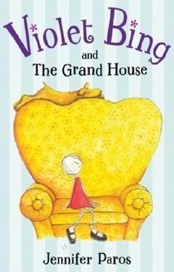Underneath It All: Learning to Look in the Right Place
by Jennifer Paros
“In the stillness of the mind I saw myself as I am – unbound. ”
We’ve lived in our house for twenty-one years but only recently did we see our first bunny. It arrived with no fanfare, just fur and long ears – so still – a fixture in the grass. Never having seen a rabbit in our backyard before, we experienced the moment as a special occasion and stared at it much the way it seemed to be looking both into and out at life. People can do this kind of seeing too, one with the moment; it’s just that our thinking sometimes gets in the way of us taking in what’s right before us, and what’s actually in us.
My grown son was talking in depressing depth the other day – doubting his ability to go forward with his education, feeling stuck, panicked, and regretting decisions he’d made in the past. At first, I was compelled to argue him point-for-point, trying to disprove his hopelessness. But everything I said just made him argue his position more. Then I started talking about who he is underneath the story he was telling. I spoke of his calm, steady, intelligent self. I talked about how that self is always right here, how it doesn’t go away, regardless of our current narrative.
It seemed like he was listening, as though his focus was shifting. I finished my thought and the next thing he said took me by surprise. “Well . . . if I can learn history by myself,” (which he has), “ there’s really no reason I can’t learn other things too.” And that was it. His energy lifted and he jumped up from his chair and left the room. He’d found what he was looking for.
As I described who he is beyond his personality’s history, habits of behavior, and thought, he’d looked in that direction with me. The stories we’ve lived are true stories, but they are temporal; they’re the stuff of This too shall pass. I wanted him to consider the foundation of who he is before the overlay of story. Just as the sun is still present despite clouds, so are we often obscured by the tale of what we’ve been through and what we fear is going to happen next. But our light remains; and identification with it is what we need in order to go forward.
“Stop searching here and there, the jewels are inside you.”
A sad story obscures the light. I’m a failure; I’m pathetic; I can’t do it; I’m not good enough; I’m losing. It blankets who we are and depending on how much we believe it, becomes our identity. We go over and over it; we defend and protect it, and inadvertently we make it denser until we feel trapped by it. But there is no story too sad to tell. Because the sad story always overlays the light of who we really are, if we tell it honestly, that light has to be represented. Our accounts of miserable childhoods, mistreatment, neglect, bad decisions, irresponsible choices – whatever the judgment – don’t have to hold us. The audience cheers the overthrow of the character’s hindering identity, rooting for the true spirit to be put back in charge.
As Buddhist writer and teacher, Pema Chodron, explains, we can use our experiences to wake us or put us to sleep. We can awaken to what is calling us forward rather than being consumed by what pulls us back. The soul doesn’t hurt; the heart doesn’t break; we do not lose love. What hurts is forgetting the love and power at the core of who we are.
When I was ten, my friend made a list of girls, which included me, whose looks were to be rated by a particular boy. She was very enthused about this idea; I was not. When the results came back, I had received a zero. I was unhappy with this experience, but I never cried over it. I knew the story of being a zero was one I’d told myself long before being “rated.” I also knew it couldn’t really be true – of anyone. The experience was calling me to what I understood deep down but was not living.
Our stories can be overwhelming. But it is remarkable what a moment of looking in the right direction can do. My son wasn’t in search of all the answers; he just wanted to feel grounded for an instant, in what he knows at heart: that he can live the life he wants to live. When we’re upset, we’re looking in the wrong place for what we want, but life is always calling us to the right place – right here, inside us.
Jennifer Paros is a writer, illustrator, and author of Violet Bing and the Grand House (Viking, 2007). She lives in Seattle. Please visit her website.

